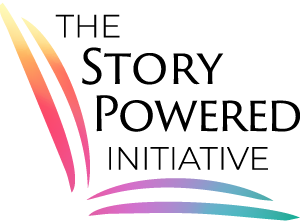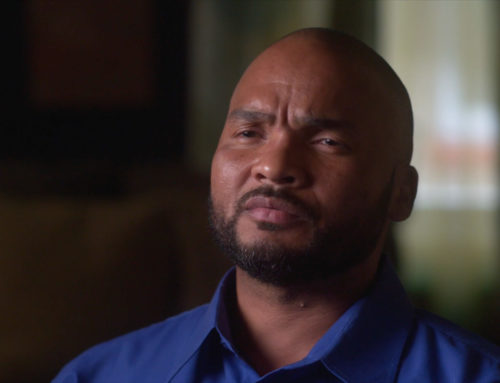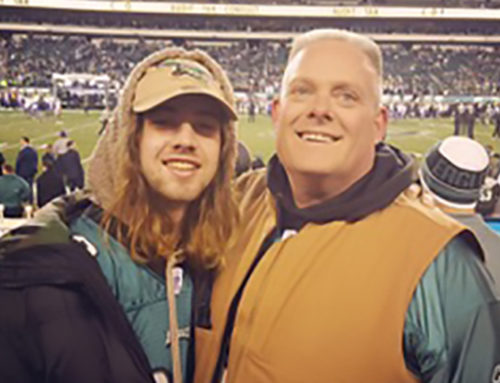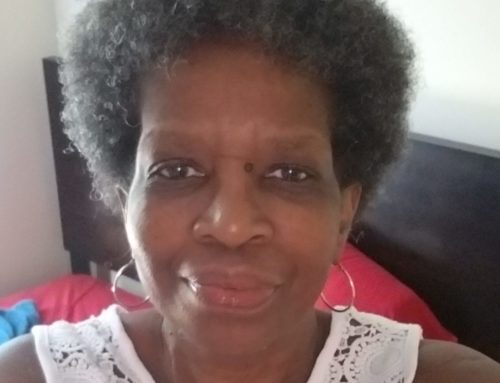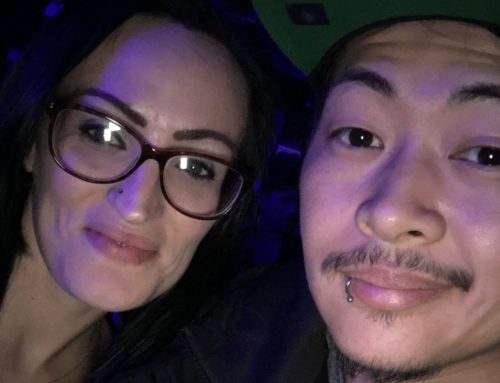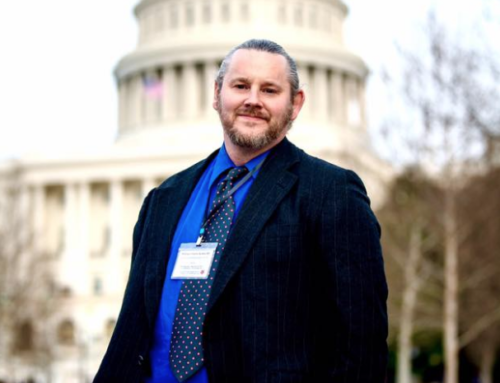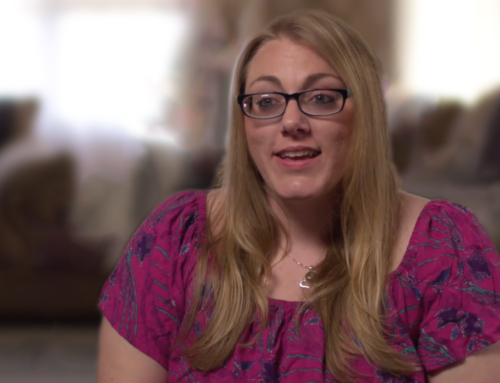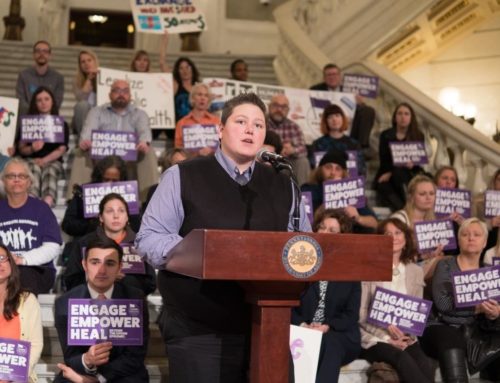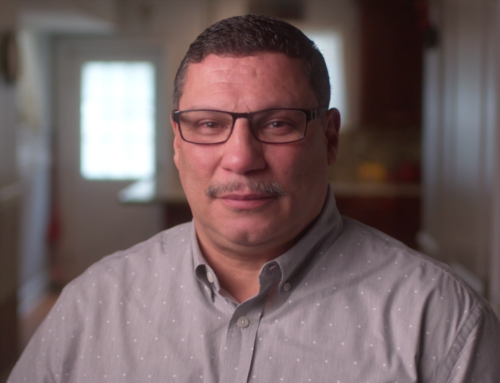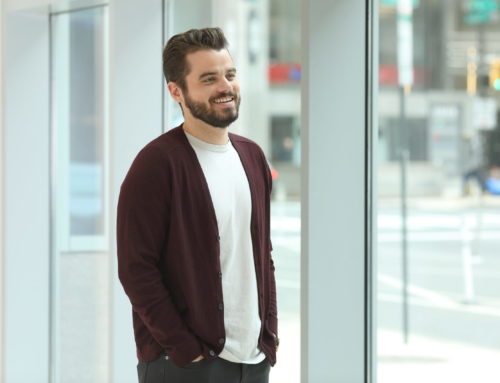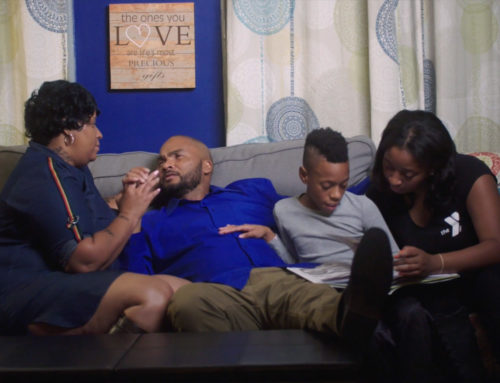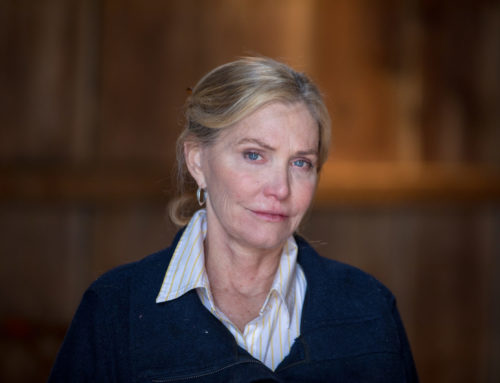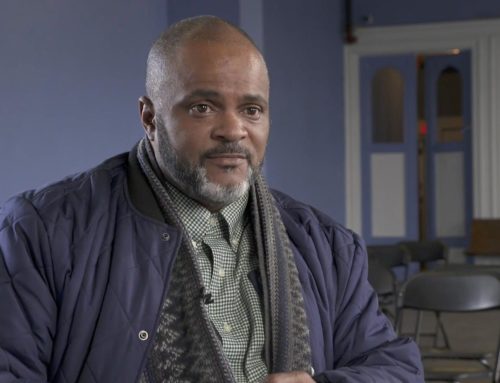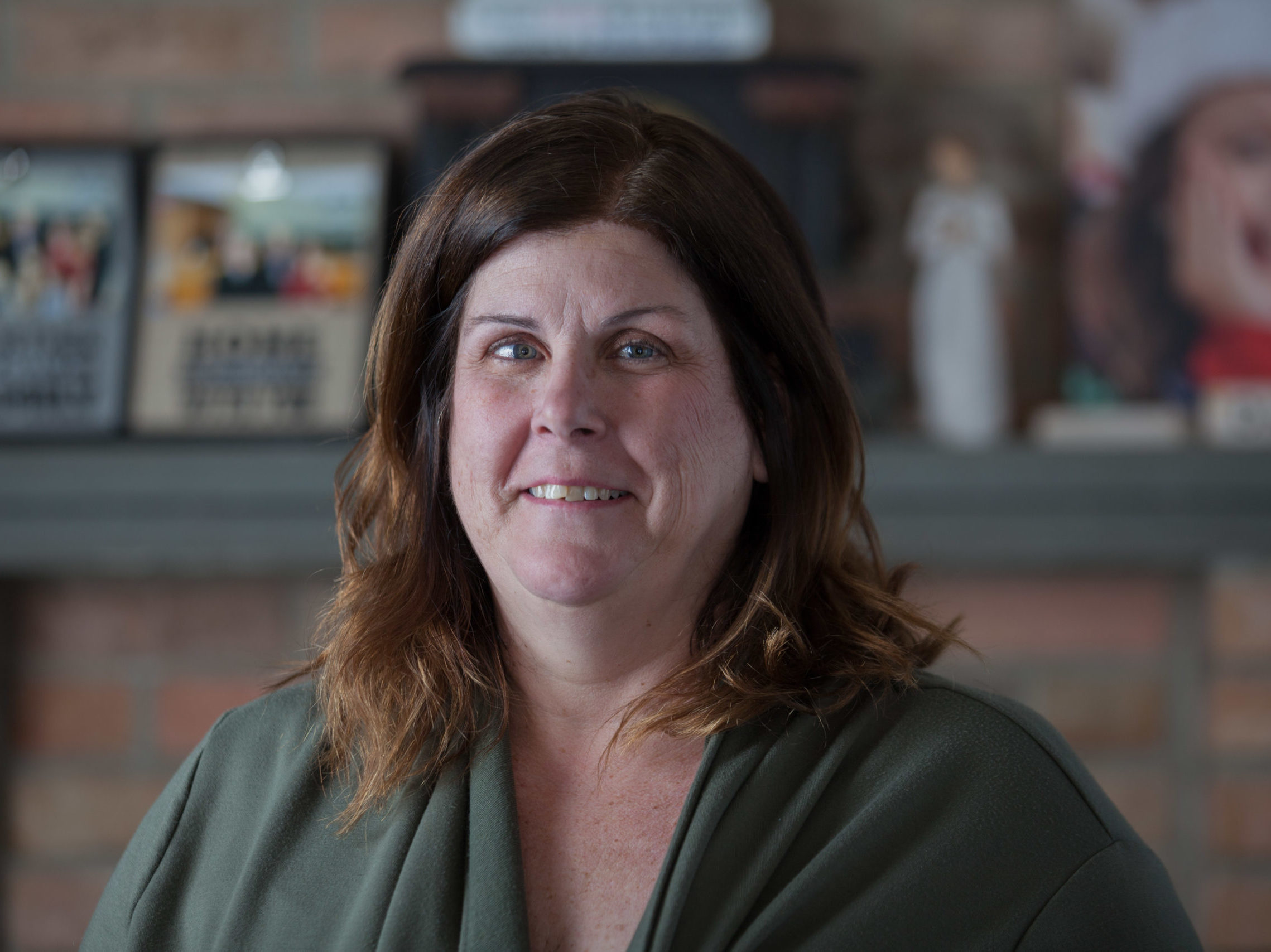
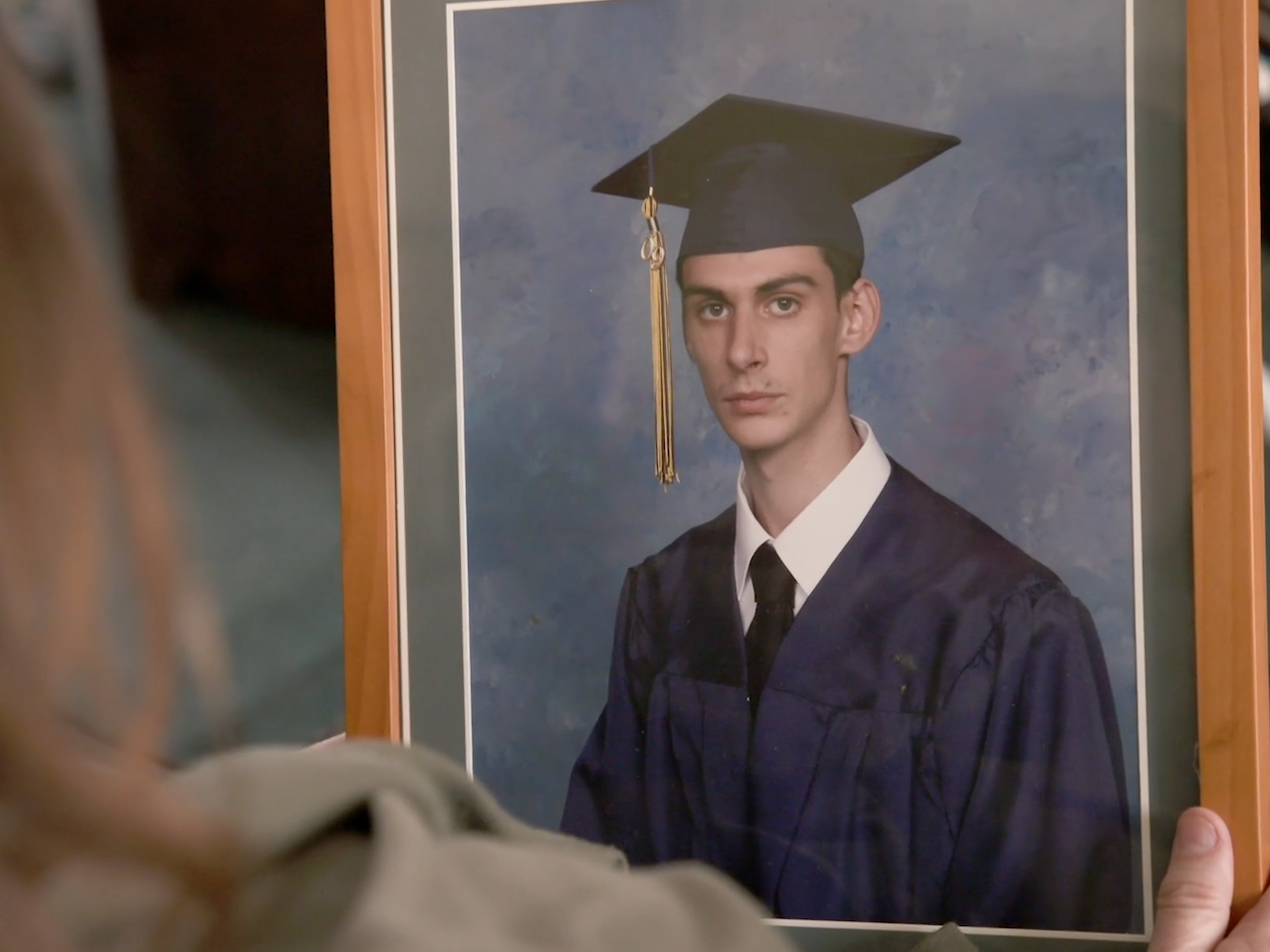
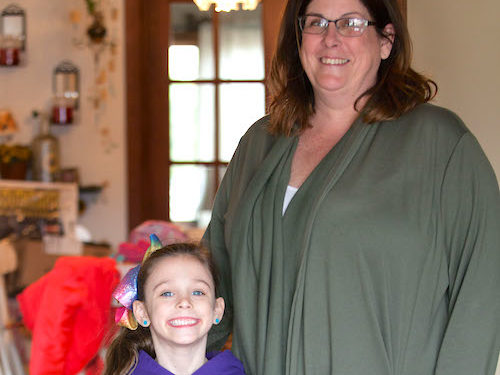
"From this experience I’ve learned the importance of asking for help."
I’m a grandmother with two children and three grandchildren. 14 years ago, my daughter had her tonsils removed and informed me that some of her pain pills were missing. Money began to go missing and I noticed my son was spending more time on his phone. Not too long after, we found out that our son was using heroin. We got a call from his teacher, who informed us that our son was using and wanted to stop. He was 13 years old. We called and later drove to a rehab facility where they did an assessment and prescribed in-patient treatment for two weeks. He then started receiving outpatient treatment and we started attending special meetings as well. He was clean for probably a year, and we thought he was cured. Eventually money started to go missing again, and my son was caught breaking into cars.
I felt embarrassed at the time because many of our friends were police officers, and they were arresting my son. I felt like nobody understood what I was going through, but as I contacted other parents I learned that many were in the same situation. I found support in talking to other mothers and realized that I should not be embarrassed of what was happening. We would text each other about who was relapsing and who needed support. I made a Facebook page and since then our online support group has grown to 75 members; mostly mothers from Bucks County. We recently held a fundraiser for Narcan and were able to raise $20,000. The group varies greatly, with mothers who have lost children as well as mothers of children who have maintained sobriety. We travel with each other when visiting our children and make ourselves available to talk when someone is having a bad experience. I’ve talked to women at three in the morning just because I was having a bad day. I feel a sense of obligation to the group in that if I enable my son, I’m letting the group down. We often joke that we should raise each other’s kids, as it’s much easier to say no to someone who isn’t your child.
My son eventually went back into treatment and the whole process became a re-occurring routine; he went in and out of rehab nine or ten times. At one time he was on the run for a week. He got out of treatment, lived in his car with a girlfriend and just bounced around. It was the week of my husband’s birthday and I remember praying that my son wouldn’t die on my husband’s birthday. That was the moment I realized this wasn’t normal. Every day there was tension in our home, awaiting the dreaded call from the coroner or police. We were thankful when he was in jail because we at least knew where he was. On more than one occasion I’ve laid awake at night planning a funeral. I’d often tell my daughter that she needed to plan for her brother’s death. I’d wonder what I would say to his daughter.
My son’s daughter is six and in kindergarten today. Thankfully, she didn’t test positive for any drugs when she was born. When she was two months old her mother overdosed in Philly. That’s when my husband and I decided this baby needed a better life and four months later we obtained custody. This led to me leaving my job to take care of her and my husband coming out of retirement.
My son accepted this course of action because he knew he didn’t have the resources to provide for her. He was thankful that we allowed him to live and co-parent with us. While friends believed we were enabling my son and his girlfriend by removing responsibility, we were only enabling our granddaughter to have a better life.
My granddaughter notices differences between her and the other kids. She sometimes asks why other kids live with mommies but she doesn’t live with hers. She doesn’t realize the situation and my husband and I don’t intend on informing her until she gets older and begins asking more questions. If either of her parents were to relapse I would probably talk to her doctor about being a little bit more honest than “Mommy’s away at work, Daddy’s away at work or at school.”
The parents of her classmates don’t see me as a mother and just last week I wasn’t invited to a night out at the classroom. When I walk to the school I see parents talking and giggling and wonder if they’re talking about my son’s issues or the absence of my granddaughter’s real mom. I know they’re probably not, but the thought always sticks in my head. Despite this, my husband and I have a wonderful support system. The friends that we’ve made through this have made it possible to get through it all.
We realized my son had a better time in treatment when he initialized the process himself and subsequently stood back to let him handle his own journey. This journey started when my son received a DUI for nodding out while behind the wheel of a parked car. He was facing jail time and agreed to complete six months of house arrest. This was the catalyst that led to him being sixteen months clean.
He’s currently on probation and receiving outpatient treatment. Despite this progress, the fear never leaves. If my son were to relapse, he’d probably die due to his lowered tolerance from sobriety. I think it’s important to remember that every addict is somebody’s child, parent, brother, sister, cousin, niece, nephew, or friend. We need to be compassionate to everyone. They are somebody’s family and they deserve the chance to survive.
This is why I am sharing my story. From this experience I’ve learned the importance of asking for help. I knew other parents whose children were using drugs, but I didn’t want them to know my son was using. There are people out there that can help, like doctors and school counselors. You may not be able to help your child, but you can help yourself. You’re not the cause, you can’t cure it, and you can’t control it. You need to take care of yourself. The stronger of a parent you are, the stronger chance your child has. Just be there for them through the journey they have to take, and know that you aren’t alone. This is why I’m sharing my opioid story, so people know that there is help out there for those dealing with a loved one’s addiction. Type in Opiate Support Group on Google and you’ll find 100,000 groups, lots of churches have support groups, there’s people out there that are more than willing to talk to you. Just talk to somebody. You’re not alone.
